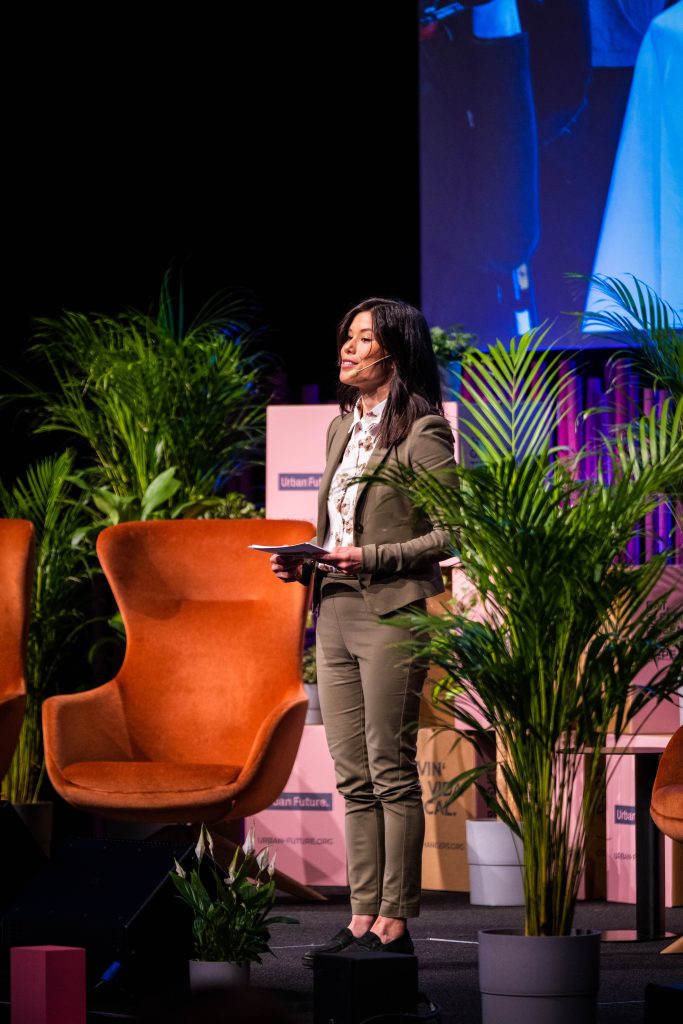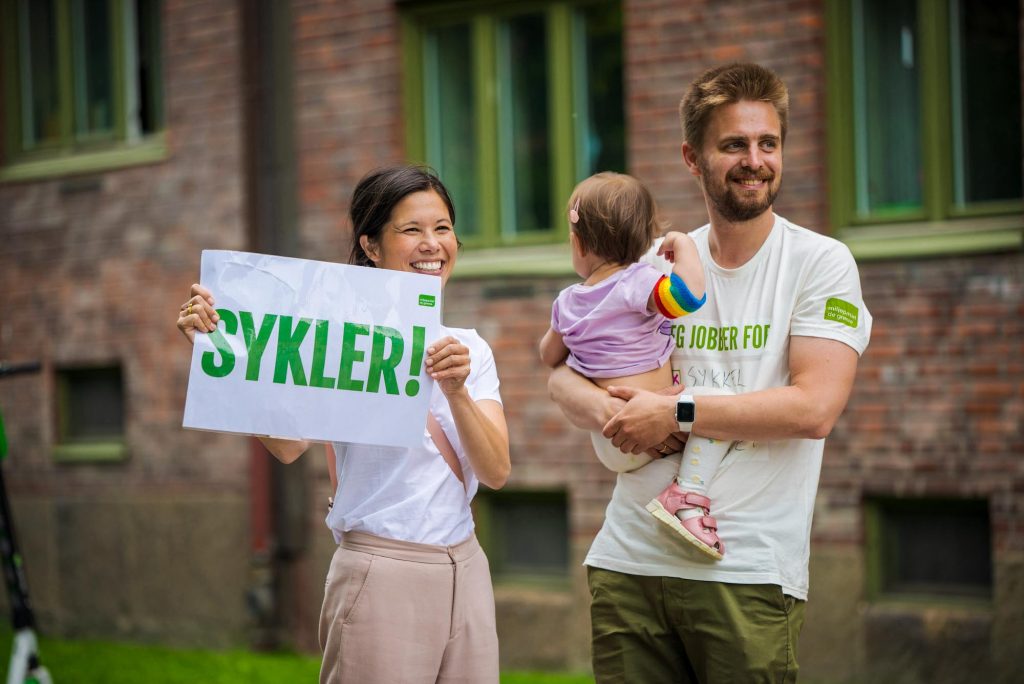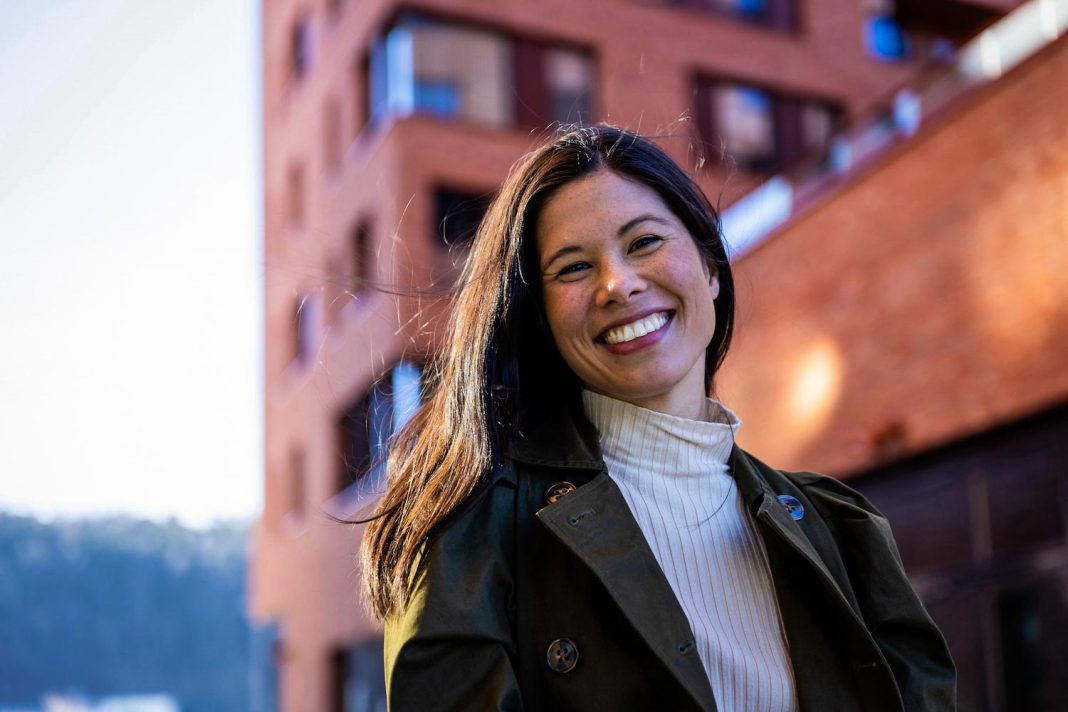When Lan Marie Berg was thrust into the public eye as Oslo’s vice mayor, the constant scrutiny became an unexpected challenge. Her climate budget and car-free zones transformed the city, but the backlash ranged from media lies to threats. What she learnt from dealing with the aftermath is a masterclass for budding politicians in handling the highs of power and lows of trolling.
Norway’s Green Party was still a small movement in 2013, having only held a seat at national parliament for two years. That changed when Lan Marie Berg found herself appointed as Oslo’s Vice Mayor for Environment and Transport. She received a lot more votes at the municipal polls than expected, and the Labour Party needed to join forces with Lan Marie to control the council. This gave her a lot of leverage and set the scene for considerable change.
Election Victory on a Green Ticket
Our CityChanger was an activist in the Norwegian climate movement for most of her 20s before deciding that she could make a greater impact in the political sphere. “We need people with that kind of idealism in politics,” she strongly believes.
Running on an environmental campaign, she used the same messages as in her activism to get a seat on the council, but not a leading one.
Lan Marie’s popularity came as a shock. The Green Party was young and unprepared for power: “We didn’t have all the structures that more established parties have for supporting a city government, which is much, much harder than being in opposition.”
What does our CityChanger believe resonated with the capital city’s citizens so much? The message that environmental measures improve our quality of life.
Top-Down Change
Oslo aspires to be the first zero-emission city. But for Lan Marie, it was also about creating stronger neighbourhoods. Her six-year stint as vice mayor was characterised by car-free zones and bicycle lanes.
“A lot of the measures that you can introduce will make lives better in the city, with less air pollution, better and more efficient transport, cleaner, reduced traffic, better roads to school for children, more playgrounds. There are so many positive things.”
A square in a poorer neighbourhood was regularly used by drug addicts and didn’t feel like a welcoming space for citizens. The coalition transformed it into a community garden. They added benches, a mobile library, outdoor games, and toys to borrow. These days, residents – including children – grow vegetables there. It restored a sense of community: “People had a big party where they ate the vegetables at the end of the summer.”
It’s a model of localised rejuvenation that’s being replicated around Oslo. But one of Lan Marie’s real triumphs was a systemic transformation.
The Climate Budget

Oslo wants to reduce 95% of harmful emissions in all sectors by 2030 (compared to 2009). Putting this challenge in context, “Norway has cut its emissions by maybe 2, 3% since 1990,” Lan Marie observes. Change had to run deep.
The Green party introduced Oslo’s climate budget in 2017. Lan Marie explains that it works because it is integrated into the fiscal budget. Emission targets must be met – or on track – for the city council to vote to approve further spending plans. It’s a mechanism that reaches across every department. By connecting climate measures with expenditure scrutiny, Oslo has installed a culture that puts a high priority on sustainable practices.
Lan Marie helped set up a dedicated climate department to oversee the process. They determined that waste incineration, transport, and construction were the most polluting activities locally. There are around 30 employees in the department, each of whom is responsible for a single target in the climate budget. They link with the relevant departments to work out “what kind of measures, what kind of policies that we need to introduce,” and what needs to be financed to hit the agreed CO2 limit permitted that year.
It’s a transparent mechanism. Three times a year, Oslo’s agencies publish the number of tonnes of carbon they emit, and the costs incurred. The departments, mayors, and vice mayors are accountable to the council and citizens alike. Some emission-cutting measures, it turns out, actually generate money; increasing road tolls has allowed Oslo to invest further in public transport.
Give Politics a Go
For anyone with climate concerns, what are the benefits of going into politics? Why should others consider treading this path?
When Lan Marie suddenly found herself in power, she realised she no longer needed to try to convince others to work on a goal, using instead what she describes as “hard power” to enact change.
“I don’t have this middleman that I have to negotiate with,” she explains. Lan Marie could push her administration to find new solutions.
It worked. So, the message she wants to share with people passionate about a cause is “to try politics if they want to”. You can make a difference.
Sunburn
But the experience wasn’t all positive. When she was an activist, the media generally portrayed Lan Marie “as a good person who means something good”. They wanted to amplify her voice. Politics is more divisive.
Because our politico worked on issues and projects that touched people’s lives, Lan Marie attracted a lot of attention.
“Overnight, I became one of the most loved and most hated people in Norway.”
She found that she was now expected to have solid answers to every critical question. The public and media demanded she “know everything from road and infrastructure planning to economy and law”. The pressure was intense.
“Many people thought that I was this totally clueless person that didn’t know anything about life or politics or Norway.”
For a self-confessed introvert who avoids conflict, this was intimidating. Lan Marie likens this exposure to being sunburnt. But getting the things done she cares about, Lan Marie knows, requires being uncomfortable.
It was something she acclimatised to within a few weeks, but there was worse to come.

The Inevitable Backlash
Our CityChanger faced the inevitable trolling on social media. “I got a lot of threats,” she recalls. But the intimidation went further.
Lan Marie was followed. They took photos wherever she went. An anonymous Facebook page was created to harass high-profile Green politicians – and someone was paid to run it!
The media often reported as much fabrication as reality. People who opposed Lan Marie’s ideas latched onto these falsehoods.
This happened when she proposed removing 30% of traffic from Oslo and most cars from the city centre. People invented a myth that the Greens wanted to prevent all car travel, including accusations of excluding people with mobility difficulties. In fact, this created more accessible space. “Of course, people with disabilities should be able to drive,” Lan Marie points out. But they persisted irrespectively.
Dealing with Difficult Dialogue
Lan Marie is no longer vice mayor, but still pushes progress as a member of Norway’s parliament, Storting. Having been exposed to the toxicity of public scrutiny at its worse and come out the other side, what would Lan Marie suggest budding politicians do to get ready for the abrupt shock and for dealing with such affronting encounters?
Start with Self-Belief
“I don’t think it’s easy to prepare. I don’t know if it’s possible. You can’t really plan a political career and how famous you are going to be. But what I can say is that you can probably handle more than you think you could.”
Keep It in Perspective
In Lan Marie’s experience, happy people don’t raise their voices; that’s the reserve of detractors. The volume of disagreement you receive does not accurately reflect a lack of support. Don’t be disheartened.
Be Honest, Always
On her election campaign, Lan Marie made her objectives clear. Those who backed her knew what they were getting.
Keep that transparency alive, she suggests, and maintain a consistent public dialogue. “When you are in position, all those people, they have expectations for you. They want to know what you’re doing. They want to know what happened to their cause.”
Consistent Messaging
Starting from scratch, the Greens implemented structures to share consistent messaging with members and voters in order to maintain a clear party line for dealing with inaccurate reporting and outright lies.
They established communication mechanisms such as:
- blanket emails to members dispelling myths and to provide guidance on what responses people can provide when questioned,
- formal meetings in local chapters, which opened up discussion to address concerns,
- using official and personal social media channels to get the message out to the public instantly.
A Healthy Distance
Politicians cannot alienate the online community. Like it or not, posts and comments are part of the contemporary discourse.
Just don’t read any of it yourself.
“Have a good team around you. If there are threats in the media or social media, then other people should read your profile and the comments and try to figure out if something should be going to the police or not.”
Forget About It
Have you ever replayed an embarrassing incident in your mind over and over and cringed every time? Now, imagine that incident was on public record.
This is what Lan Marie faced when she felt interviews went badly.
It’s important to remember that the report is just one page in one newspaper, she came to realise. Most people won’t even notice any awkwardness. Tomorrow it will be old news and you’ll be the only one dwelling on the problem. So, don’t.
Remember the Good Times
It was a hard slog, but Lan Marie created significant improvements both in the council itself and at street level.
“When people come to me now and say, “I think about you every day, because I am biking and I feel safer”, all those things make me so happy. That’s why it’s been worth it all the way.”
Handling Public Scrutiny in a Nutshell
As vice mayor, Lan Marie Berg made inroads to Oslo’s mission to almost eliminate carbon emissions. By tying spending to emissions reduction, her climate budget is an example to all cities looking to enforce systemic change. While Lan Marie took the toll for implementing hard-hitting measures in such a public forum, our CityChanger discovered she is as resilient as the neighbourhoods she transformed. And thanks to her fortitude, we know that dealing with negative coverage in the fast-paced world of politics is best done with a good team, a short memory, and a lot of honesty.


